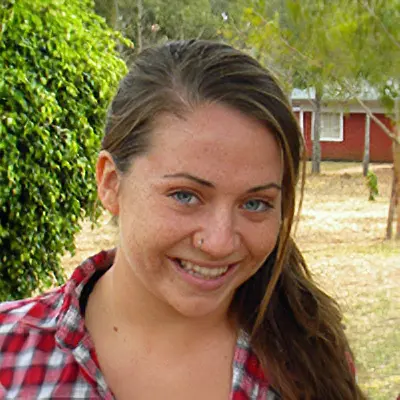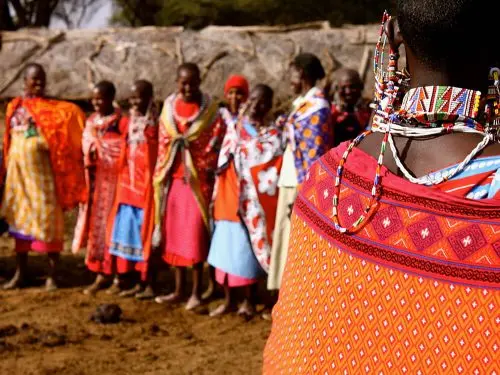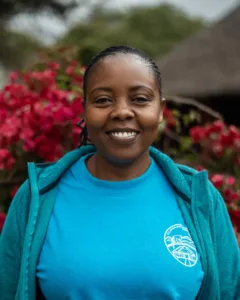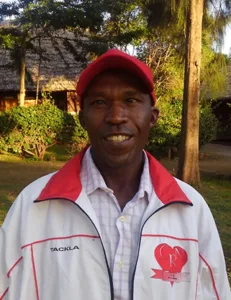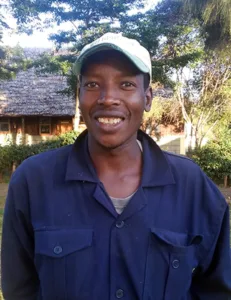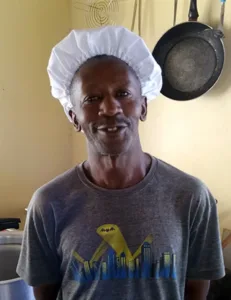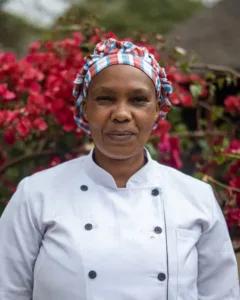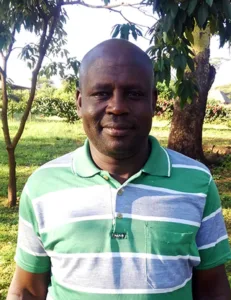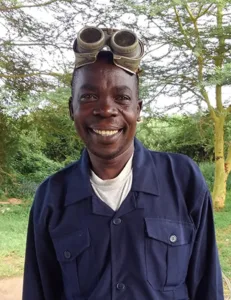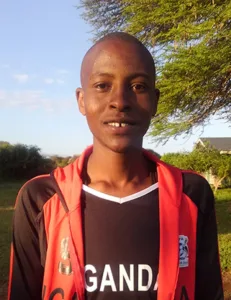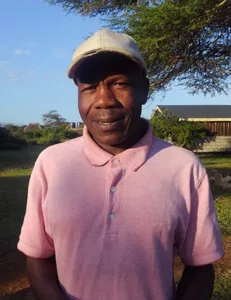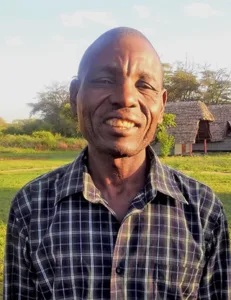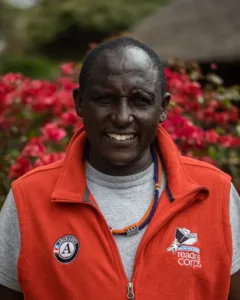Kenya
Study Abroad in Kenya
Track elephants across golden savannas. Watch a crowned crane rise over the wetlands. At the foot of Mt. Kilimanjaro, the Kenya program immerses you in one of Africa’s most iconic conservation landscapes. Here, endangered species roam, and wildlife corridors intersect with Maasai community pastures.
Semester students also journey into Rwanda’s tropical highlands to study endangered mountain gorillas. Moving beneath the rainforest canopy, you’ll witness conservation at its most visceral: locking eyes with a silverback or watching a young gorilla forage in shafts of sunlight.
Fieldwork spans the dynamic edges of livestock, biodiversity, and climate stress. You’ll map elephant movement through Amboseli’s wetlands, interview Maasai leaders on pastoral futures, and analyze land use amid rising conservation pressures.
Days unfold in dialogue with both ecological research and lived experience. As you work alongside SFS faculty, conservation professionals, and Maasai community partners, you’ll investigate human–wildlife conflict, protected area management, and strategies for endangered species conservation in a rapidly changing climate. You’ll gain a grounded understanding of how people and wildlife adapt together—day by day, season by season.
Programs
Endangered Species
See Program Costs
Program Costs
- Tuition
- Room & Board
- Total
Elephants of the African Savanna
See Program Costs
Program Costs
- Tuition
- Room & Board
- Total
Wildlife Health and Conservation
See Program Costs
Program Costs
- Tuition
- Room & Board
- Total
Where You'll be Living
The Center lies in the heart of Kenya’s Rift Valley, between three world-famous national parks. The snow-capped peak of Mt. Kilimanjaro towers over miles of savanna, replete with a diversity of wildlife. The spacious campus includes thatched bandas (cabins) and a central chumba (main building), just down the road from the small town of Kimana.
- Dorm living with 3-person bandas
- Chumba contains classroom, dining area, and study spaces
- Kitchen and dining hall, on-site cooking staff
- Stunning views of Mt. Kilimanjaro
- Nearby running trail and walking path
- Basketball court, soccer/frisbee field, and fire pits
Know before you go
Click on each dropdown to explore details about life at this Center, and determine if it’s the right fit for you.
Program experience
Living Conditions & Daily Life
Students follow a structured schedule with classes and fieldwork typically from 7 AM to 5 PM, including occasional weekends. Students live in shared dormitory-style bandas (2–4 students per banda) with communal dining facilities; all meals are provided.
An early curfew is strictly enforced due to the presence of wildlife at and around the SFS Center. Independent travel is not permitted during the program. Free time is limited, but evenings allow for personal downtime or center-organized activities. Students should budget for optional meals or outings during the semester.
Physical Readiness
Fieldwork includes wildlife tracking, game drives, short hikes, household surveys, and transects, often requiring 5–6 hours of activity per day. During Directed Research, students may be on their feet for several consecutive days.
The climate is hot, arid, and dusty, with intense sun exposure. Travel in rugged safari vehicles can be physically taxing, especially for those with spine, neck, or joint issues. A baseline level of fitness is essential, including the ability to hike for 3 hours without stopping.
Accessibility is limited, and students with mobility impairments, asthma, or dust allergies may find conditions challenging.
Travel & Transitions
Students are based at the SFS Kenya Center, a rural field station near an agricultural village. The program frequently travels to national parks, conservation areas, and local communities—with some vehicle rides lasting up to 6+ hours over rugged roads.
Semester students should prepare for 3–4 weeks of continuous travel away from the center, including stays at campsites, field stations, and hotels.
The program includes mandatory homestays, which are brief but deeply immersive. While conditions may feel austere or unfamiliar, most students find them to be one of the most meaningful aspects of the experience.
Flexibility is essential due to weather-related or logistical schedule changes.
Location & Culture
Program Location & Natural Environment
The SFS Center is located on a rural, biodiverse property near Rhotia village. Students experience constant sensory immersion—the sounds of wild animals, vivid sunsets, and close encounters with wildlife such as bush babies, monkeys, snakes, birds, spiders, insects, and more. A running trail encircles the center, and wildlife is part of daily life.
Cultural & Linguistic Differences
Kenya is home to diverse ethnic groups, languages, and traditional norms. Students engage directly with local communities, gaining insight into traditional gender roles, customs, and expectations.
Conservative dress is required during community interactions (e.g., covered shoulders, long pants or shorts and skirts past the knee is required). Public displays of affection or expressions of sexual orientation or gender identity are discouraged and may not be culturally accepted.
Classes are taught in English, and students receive basic Swahili instruction during semester programs. While English is widely spoken, proficiency may vary in rural areas.
health
Allergies & Dietary Preferences
Traditional Kenyan meals often include peanuts, maize, eggs, and spices. The SFS kitchen staff strives to accommodate dietary needs and travel with students when possible.
However, while traveling or dining outside the Center, substitution options are limited, and cross-contamination cannot be guaranteed, especially on overnight camping expeditions. Gluten-free products and vegan protein sources are difficult to find, especially in rural areas.
Cross-contamination accommodations for advanced allergies abroad may not be feasible. Students with severe or life-threatening allergies and/or strict dietary requirements must consult with medical professionals and [email protected] before applying.
Required Vaccinations & Health Care
SFS requires the Yellow Fever vaccination and malaria prophylaxis. For additional recommendations, consultation with a travel medicine professional is strongly advised before departure. For semester programs, see local recommendations for Kenya, Tanzania, and Rwanda as the SFS program may include travel outside Kenya.
Basic medical care is available 30 minutes from the SFS Center. Advanced medical services in Nairobi are approximately 4 hours away, and students may be 6+ hours from basic care during field excursions.
Routine in-person medical and counseling services are not feasible during the program. Students must bring a full supply of any prescription medications, including psychotropic medications, for the entire duration of the program, as local refills may not be available without prior arrangements.
PRogram Costs
Study abroad is an investment in yourself – you’ll return home with new experiences, skills, knowledge, and friendships that will stay with you for the rest of your life. SFS program costs cover a variety of expenses, including:
- Pre-program advising and on-site orientation
- Tuition and research fees
- Housing at the field station and on excursions
- Daily meals and snacks
- Airport transfers (for arrival/departure)
- Field excursions and cultural activities
- Student success and wellness team on site
- 24/7 mental health and well-being support
- Emergency evacuation and repatriation insurance
- Official transcript processing
Financial Aid
We know cost can be one of the biggest barriers to studying abroad. At SFS, we’re committed to making our programs accessible to students which is why we award a generous amount in need-based financial aid each year. Our Admissions Team has worked with thousands of students and are here to answer your questions about the SFS aid process, aid available through your home school, and funding from external sources.
SFS Financial Aid: Need-based aid packages typically consist of a combination of scholarships, grants, and zero- and low-interest loans. SFS matches Federal Pell Grant funding for students applying to an SFS semester program.
Home School Aid: Be sure to ask your home school study abroad office or financial aid office what financial aid resources might be available to support your study abroad experience.
External Funding Opportunities: Organizations such as the Fund for Education Abroad or the Gilman International Scholarship Program award scholarships to students going abroad. These can be a great opportunity to reduce the cost of your program even more.
Research
Research at the SFS Center for Endangered Species Conservation focuses on the ways in which climate change is impacting the region’s wildlife populations and natural resources. We explore how Kenya’s wildlife, ecosystems, and communities are responding to environmental threats, as we research wildlife management and community-based conservation strategies that can help build a more sustainable future. Students and faculty engage with national park staff, regional conservation experts and wildlife specialists, Maasai and other Indigenous peoples, NGOs, and landowners to gain different perspectives and contribute research data to the community.
Our research focuses primarily on the following themes:
- Endangered species conservation
- Wildlife management
- Climate change impacts
- Large mammal & primate behavior
- Wildlife ecology
- Community-based conservation
- Human-wildlife conflict
- Natural resource management
- Protected areas management
Community
SFS is an active part of the Kimana community, where we have been based for more than 20 years.
We have built long-term, collaborative relationships in the communities around the Center, and developed our research plans based on the environmental issues they face. Throughout the program, students visit local markets and neighboring boma (Maasai homestead), spend the day with a local family, participate in traditional Maasai celebrations, take part in outreach and community service in local schools and villages, and join in local sports.
At the end of each semester program, we host a Community Research Night where select students will present their research findings to the community. SFS research data is shared with the community, national park and conservation organization representatives, local NGOs, and the Kenyan government.

